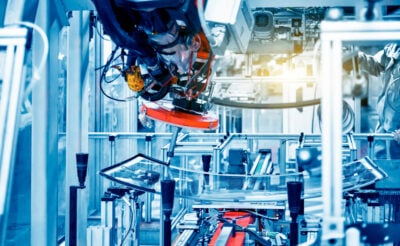Technical Guidelines for Using Resin Bond Diamond Grinding Wheels
Use these as a starting point and adjust to your setup. A resin bond diamond grinding wheel runs best when speed, pressure, and coolant are kept within a steady window.
- Speed: Stay within the wheel’s rated RPM; small adjustments can be made to make the wheel act harder or softer by increasing or decreasing the speed slightly.
- Grinding force: Add only what’s needed to keep the wheel cutting—too light = glazing; too heavy = heat.
- Passes: Several light passes usually give better results than one heavy pass. But too light of a pass can result in the wheel becoming less efficient at cutting.
- Coolant: Keep a steady, direct stream; clean filtration helps prevent loading.
- Dressing: Short, scheduled dressing keeps the face open and sharp.
- Grit choice: Coarser for faster removal; finer for a smoother edge.
Once the wheel is running well, small tweaks can improve results and extend life.
Optimizing Resin Bond Wheels
Easy “if/then” checks you can use to get more from a resin bond diamond grinding wheel without adding cost.
- If a wheel glazes → dress and true the wheel or try one step coarser grit, make sure the wheel is not taking too light of a cut.
- If edge chips increase → move one step finer grit and a lighter cut.
- If time per part is high → rough with a coarser wheel, then finish with a finer one.
- If wear is uneven → recheck runout and wheel deflection; re-dress the face flat.
- If results vary → standardize speed, pressure, and dressing intervals.
A common question with a straightforward answer…
Is It Safe to Use a Resin Bond Grinding Wheel?
Yes—when used as intended. It’s safe to run a resin bond diamond grinding wheel if you follow the basics below.
- Rated speed: Never exceed the wheel’s marked RPM on a resin bond diamond grinding wheel.
- Guards: Keep machine guards in place.
- Check condition: Look for cracks, chips, or damage before mounting.
- Start safely: Spin up to speed away from the work.
- Dust and heat: Prefer wet grinding; if dry, use proper dust extraction.
Selecting the Right Diamond Wheel
Selecting the appropriate diamond wheel for your glass grinding needs involves considering several factors:
- Grit Size: Choose the grit size based on the desired surface finish and material removal rate.
- Bonding: Consider the bond, with the resin bond being softer and the metal bond being harder.
- Coolant Usage: Determine whether wet or dry grinding is required, keeping in mind that resin-bonded abrasive wheels are well-suited for wet applications.
- Workpiece Material: Take into account the type and hardness of the glass or material you are grinding.
In the world of glass grinding, the choice between resin-bonded and metal-bond superabrasive wheels is not a one-size-fits-all decision. Each type of wheel has its unique advantages and considerations. Resin-bonded wheels are prized for their exceptional finish quality and versatility, while metal-bond wheels excel in high-stress, precision applications.
When selecting the right diamond wheel for your glass grinding needs, carefully assess the specific requirements of your project, the material you're working with, and the desired results. By doing so, you can ensure that your grinding process is efficient, and effective, and ultimately produces the high-quality glass products you aim to achieve.
Choose the Right Bond for Glass—With Confidence
We understand that glass programs leave little room for error: one incorrect choice in engineering can potentially cause micro-chips, haze, or edge failures. Eagle Superabrasives helps teams match the wheel to the application, taking into account environmental variables and optimizing cycle times .
Talk with us today to review your glass grinding application and lock in a wheel that performs as good as or better than you hoped.
![]()
In the world of glass grinding, the choice between resin bond and metal bond diamond wheels is not a one-size-fits-all decision. Each type of wheel has its unique advantages and considerations. Resin bond wheels are prized for their exceptional finish quality and versatility, while metal bond wheels shine in high-stress, precision applications.
When selecting the right diamond wheel for your glass grinding needs, carefully assess the specific requirements of your project, the material you're working with, and the desired results. By doing so, you can ensure that your grinding process is efficient, and effective, and ultimately produces the high-quality glass products you aim to achieve.
In conclusion, whether it's achieving a pristine glass surface finish or tackling heavy-duty glass grinding tasks, understanding the differences between resin bond and metal bond diamond wheels will empower you to make the best choice for your glass processing needs.





